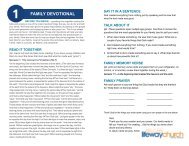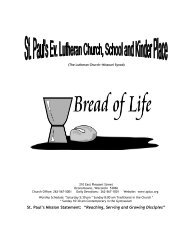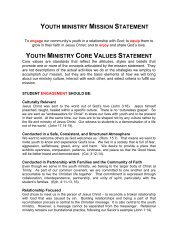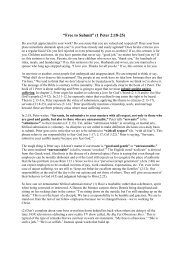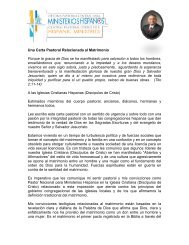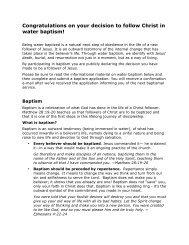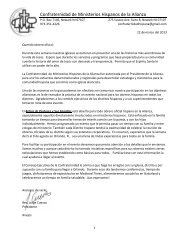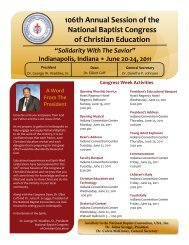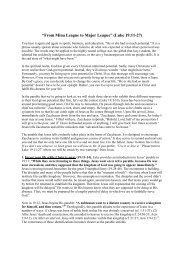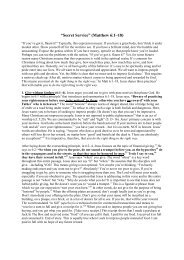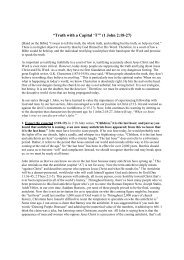A Proposal to Reduce Unnecessary Divorce - Razorplanet
A Proposal to Reduce Unnecessary Divorce - Razorplanet
A Proposal to Reduce Unnecessary Divorce - Razorplanet
Create successful ePaper yourself
Turn your PDF publications into a flip-book with our unique Google optimized e-Paper software.
22<br />
In her classic qualitative study of the divorce process, Columbia University<br />
sociology professor Diane Vaughan revealed what clinicians and lawyers often<br />
see in practice: in many cases one spouse is blindsided by the other’s announcement<br />
that divorce is imminent. The shocked spouse has little time <strong>to</strong><br />
adjust <strong>to</strong> this news, and sometimes moves in<strong>to</strong> panic mode and does something<br />
that constitutes a “fatal mistake” in the eyes of the spouse who has been<br />
preparing <strong>to</strong> leave for some time. 25<br />
As an illustration, consider the scenario of a husband who is stunned by his<br />
wife’s announcement that she wants a divorce. He moves in<strong>to</strong> a motel that<br />
night, and returns home the next day <strong>to</strong> plead his case, only <strong>to</strong> discover that<br />
his wife has changed the locks. He becomes enraged about being locked out<br />
of his own house and breaks a door or window <strong>to</strong> get inside. His wife understandably<br />
becomes afraid. Her lawyer helps her get an Order of Protection<br />
against her husband. Now he cannot see his children until he gets assistance<br />
from his own lawyer. As this couple heads in<strong>to</strong> divorce, there is recorded judicial<br />
support for the idea that the husband is a danger <strong>to</strong> the wife and perhaps<br />
<strong>to</strong> their children. A nontrivial waiting period before getting a divorce can allow<br />
such a couple <strong>to</strong> cool off and perhaps reflect more deeply about the situation<br />
before taking an irrevocable step <strong>to</strong> end their marriage.<br />
3. The law moves couples more rapidly <strong>to</strong>wards divorce than perhaps they<br />
had intended or faster than both spouses want.<br />
Very short waiting periods, combined with little or no help for exiting the divorce<br />
superhighway, leaves little possibility for either spouse <strong>to</strong> consider reconciliation.<br />
In some cases, spouses who do not necessarily want a divorce (at<br />
least not yet) visit a lawyer mainly <strong>to</strong> get the other spouse’s attention. But once<br />
they do so, before they know it they can become caught up in legal and relationship<br />
turbulence, propelled <strong>to</strong>wards a divorce they may later regret.<br />
Even if one spouse is determined not <strong>to</strong> reconcile, there are strong reasons <strong>to</strong><br />
think that the pace of the divorce should follow the spouse who is less interested<br />
in getting the divorce. 26 Professors Furstenberg and Cherlin, again echoing<br />
Diane Vaughan’s work, found that four out of five marriages ended unilaterally.<br />
Such divorces begin at one spouse’s insistence—most often the wife’s.<br />
Pushing a reluctant spouse, often a husband, <strong>to</strong> move <strong>to</strong>o quickly through a<br />
painful dissolution can increase conflict and litigation at the time of the divorce,<br />
and can exacerbate post-divorce conflicts over hot-but<strong>to</strong>n issues such as



